Como parte de nuestra misión de promover una investigación excelente en un entorno multidisciplinar, adquirimos el compromiso de formar a científicos y maximizar el impacto de nuestra ciencia en la sociedad.
Coordinada por la Oficina Académica, con la colaboración de otros departamentos, la formación complementaria se centra en nuestros investigadores doctorales y posdoctorales. Sin embargo, también se implementan actividades de formación a toda la comunidad.

Actividades de formación
Ofrecemos una amplia gama de actividades de formación periódicas (cursos y talleres) más allá del laboratorio que pretenden desarrollar y fortalecer las competencias básicas complementarias necesarias para una carrera investigadora exitosa. Nuestro programa de formación trata principalmente de habilidades transferibles, pero también incluye cursos más técnicos. Las actividades formativas se dividen en las siguientes categorías:
1. Desarrollo profesional
Talleres para mejorar los conocimientos, habilidades y experiencia de los investigadores, lo cual les permitirá aprovechar su ciencia y abrir oportunidades profesionales más allá del ámbito académico.
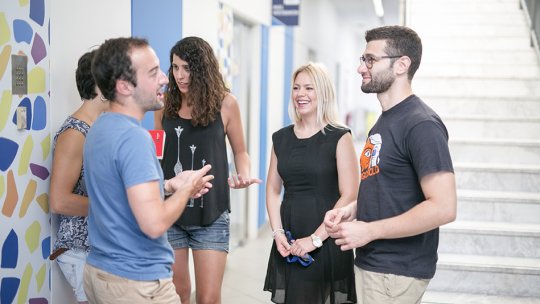
2. Innovación
El Departamento de Innovación del IRB Barcelona participa activamente en el diseño de actividades de formación relacionadas con la innovación (ya sea impartiéndolas o facilitando el contacto con expertos). La formación está diseñada para mejorar un amplio espectro de aptitudes tanto técnicas como interpersonales relacionadas con el emprendimiento y el desarrollo empresarial.
Esta sección incluye talleres y actividades formativas, que se dividen en cuatro categorías: transferencia de tecnología, emprendimiento, propuesta de valor e innovación.
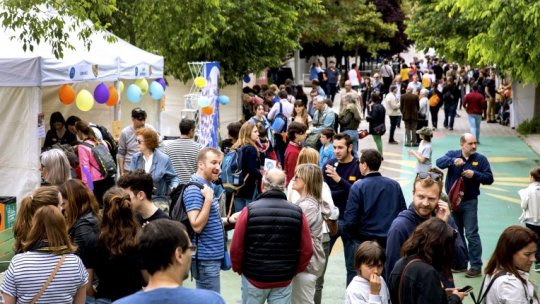
3. Comunicación
Los talleres sobre habilidades comunicativas tienen como objetivo ayudar a los investigadores a mejorar su comunicación oral/escrita no solo cuando se dirigen a un público científico, sino también al público en general.
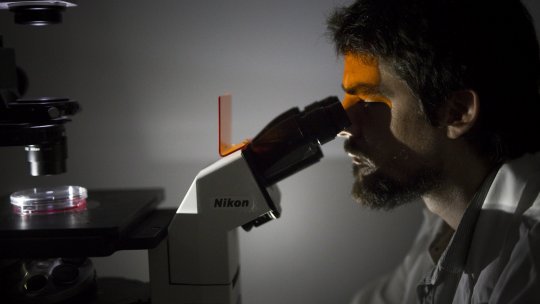
4. Formación científico-técnica
Los talleres de habilidades técnicas y científicas pretenden mejorar las habilidades y los conocimientos de los investigadores con respecto a técnicas específicas, conocimientos informáticos, etc.
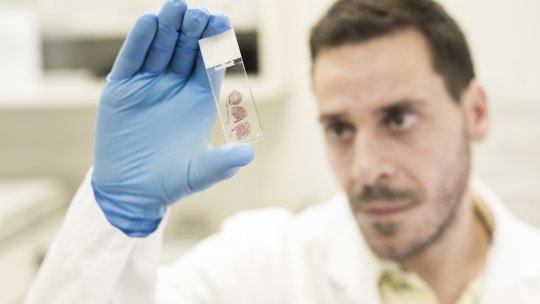
5. Desarrollo profesional personal
Cada investigador doctoral está supervisado por un comité asesor de tesis (TAC), formado por tres miembros. El TAC no solo pretende tutelar, supervisar y orientar al investigador en todos los aspectos relacionados con la tesis y el desarrollo profesional, sino también atender las preocupaciones individuales que puedan surgir.
Además, siguiendo los principios de la Carta Europea del Investigador, a partir de 2020 el IRB Barcelona está implementando un conjunto de medidas para reforzar el desarrollo profesional de forma personalizada. En este sentido, en 2019 varios miembros del Departamento de Recursos Humanos y Asuntos Académicos recibieron formación especializada como “asesores profesionales” y ahora están llevando a cabo planes de desarrollo profesional individualizados para investigadores doctorales, con lo cual los ayudan a identificar, adquirir o fortalecer habilidades que servirán para mejorar sus perspectivas laborales.
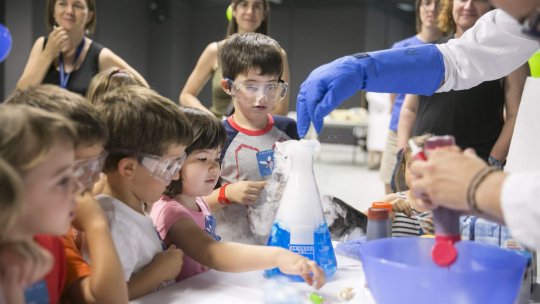
Programa de actividades
This workshop led by Cecilia Gorriz (digital designer) will be focused on how to create and edit scientific images with Photoshop and Illustrator.
What can you do to make yourself a more effective doctoral researcher and get the most out of your PhD?
BIST centers by using the VITAE’s framework, have organized an interactive and intensive two-day course: “How to succeed in your PhD?”, which has been designed for you as first year doctoral researcher and will look at practical ways to increase your effectiveness and meet the challenges of your PhD.
The mission of the Biostatistics/Bioinformatics Unit is to conduct collaborative research and to provide consultation and quantitative research resources to all IRB Barcelona research groups.
We assist scientists by providing both short and long-term consultancy services in the following areas:
• Experimental design • Data analysis • Assistance with statistical methodology in own or others’ research • Software: help in using software, development of software to meet special data analysis or study design needs
On 26 November 2019 IRB Barcelona will host the first EMBO research integrity workshop in our institute. The workshop is divided in two sessions, a morning session from 9:15 to 10:30 open to the entire community, and an afternoon session addressed to senior researchers, including members of Committee for Research Integrity, Group Leaders and members of the Postdoc Council.
Given the relevance of the topic IRB encourages everyone to attend the open informative session (details below), which will be held at the “Caparrós” Auditorium.
Please note that IRB Barcelona plans to continue organising future training events in research integrity and related activities, and also that we are open to ideas and suggestions on how to promote research integrity at IRB.
Innovation & Tech Transfer at IRB Barcelona: From the bench to the market by Innovation Department at IRB Barcelona
The group will comprise 15 participants, who will attend two 4h sessions, held over 2 mornings.
Tuesday 16 and Thursday 18 April. 09:00 to 13:00
You should download the trial version of Indesign onto your pc and bring it with you to the course.
Speakers/Trainers: Lídia Bardia, Anna Lladó, Nikolas Giakoumakis, Sébastien Tosi and Julien Colombelli
Speakers: Brian McCarthy and Peter Corry, Fundació Dr. Antoni Esteve
This session will cover an introduction to current techniques and the best approaches to perform a range of mutations in the mouse, including pro-nuclear injection and the use of mouse embryonic stem cells for gene targeting.
The second part of the session will cover the use of DNA sequence specific nucleases; The current state of the technology and it’s likely future development.
Places reserved for IRB Barcelona alumni.
How to discover new medicines: From target to drug candidates by Israel Ramos, Technology Transfer Consultant at IRB Barcelona
Scientists at IRB Barcelona are supported by an extensive range of common core facilities that provide state-of-the-art technologies and scientific services. The mission of the Biostatistics/Bioinformatics Unit is to conduct collaborative research and to provide consultation and quantitative research resources to all IRB Barcelona research groups.
We assist scientists by providing both short and long-term consultancy services in the following areas:
• Experimental design: sample size, study design, planning of statistical methodology • Data analysis: clinical or biomedical databases, genomics data • Assistance with statistical methodology in own or others’ research • Software: help in using software, development of software to meet special data analysis or study design needs
Research projects attractive for biopharmaceutical industry by Horacio Moreno, Entrepreneur-in-Residence at IRB Barcelona
If you love reading about the latest scientific advances and are interested in pursuing employment opportunities beyond the bench, then an editorial career might be for you. In this seminar, Brooke LaFlamme, Chief Editor of Communications Biology, will talk about her personal career path and what she thinks makes a great editor. Her presentation will also provide an overview of the editorial process at Nature Research and Communications Biology in particular, including how they decide which papers to send to review and how the publication process works. In the last part of her presentation, she will give advice on how to best organise and present manuscripts prior to submission, from an editor’s perspective. In the final part of the session, you will work in groups to edit your own abstracts, applying the principles learned.
This training workshop aims to:
Become familiar with the working of scientific argumentation.
Recognize the structure and content of different types of scientific documents.
Write a solid project’s abstract.
Learn a few tips and common mistakes in English.
Set the basis for writing of a scientific article.
Speaker: Xavier Lasauca, Knowledge Management (Directorate-General for Research, Generalitat de Catalunya)
Innovation Workshop Series – ‘Scientists as Entrepreneurs’
